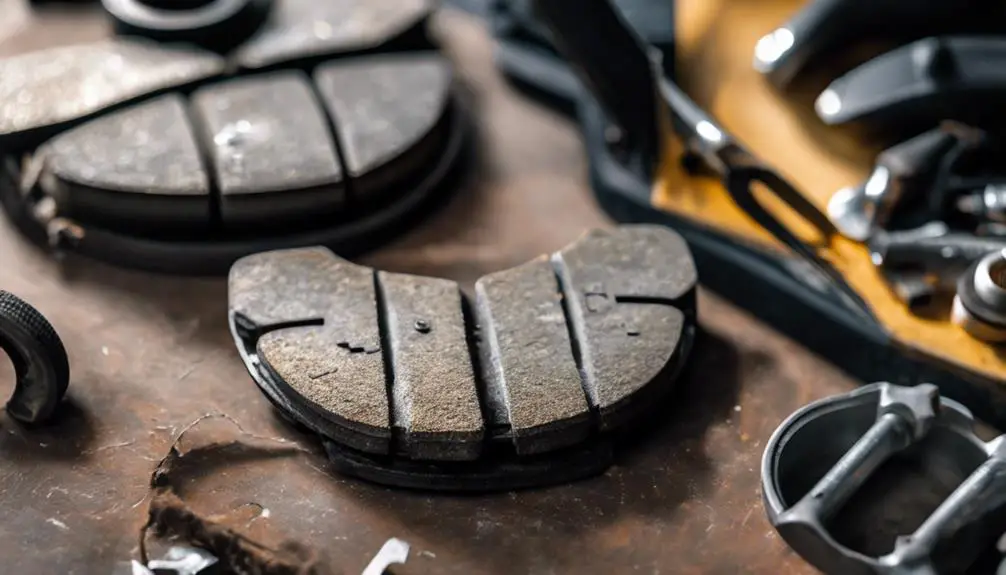How Often Do I Need To Replace Brake Pads

Knowing when to replace your brake pads is crucial for both your safety and the longevity of your vehicle. There's no one-size-fits-all answer; the frequency depends on several factors, including your driving habits, the type of brake pads you use, and the kind of vehicle you own. This article will provide a comprehensive guide to understanding brake pad wear, identifying common problems, and ensuring your brakes are always in top condition.
Factors Affecting Brake Pad Wear
Several elements contribute to how quickly your brake pads wear down:
- Driving Habits: Aggressive driving, frequent hard braking, and stop-and-go traffic drastically shorten brake pad life. Conversely, smooth, gradual braking extends it. For example, someone who drives a Toyota Camry primarily on highways will likely need brake pad replacements less often than someone who drives the same car in a busy city like New York.
- Brake Pad Material: Brake pads come in various materials: organic, semi-metallic, and ceramic. Organic pads are softer and wear faster, while ceramic pads are more durable but can be more expensive. Semi-metallic pads offer a balance between cost and performance. A Honda Civic owner might opt for semi-metallic pads for daily driving, whereas a performance-oriented car like a Subaru WRX might benefit from ceramic pads for better high-temperature performance.
- Vehicle Type: Heavier vehicles and those used for towing put more stress on the brakes, leading to faster wear. A heavy-duty pickup truck like a Ford F-150 used for towing will require more frequent brake pad replacements than a lightweight sedan.
- Road Conditions: Driving on hilly or mountainous terrain, or on roads with a lot of gravel or debris, can accelerate brake pad wear.
Common Symptoms of Worn Brake Pads
Recognizing the signs of worn brake pads is essential for timely replacement and preventing further damage.
- Squealing or Screeching Noises: This is the most common symptom. Many brake pads have a built-in wear indicator that emits a high-pitched squeal when the pads are nearing the end of their life. This sound is designed to alert you to the need for replacement.
- Grinding Noises: A grinding noise indicates that the brake pads have worn down completely, and the metal backing plate is rubbing against the rotor. This is a serious issue that can damage the rotors and requires immediate attention. Ignoring a grinding noise can lead to costly rotor replacements, for example, on a Nissan Altima.
- Reduced Braking Performance: If you notice that your car takes longer to stop or requires more pressure on the brake pedal, it could be a sign of worn brake pads. This can also indicate other brake system issues, such as low brake fluid or air in the lines.
- Vibrations or Pulsations: Vibrations or pulsations felt through the brake pedal during braking can indicate warped rotors, which are often a result of excessive heat caused by worn brake pads.
- Visual Inspection: Regularly inspect your brake pads to visually assess their thickness. If the pad material is less than ¼ inch thick, it's time for a replacement. You can often see the brake pads through the spokes of your wheels, especially on vehicles like a Chevrolet Malibu.
Troubleshooting Brake Pad Problems
Here's a problem-solution approach to common brake pad issues:
Problem: Squealing brakes.
Possible Causes: Worn brake pads, brake dust accumulation, or glazed brake pads.
Solutions: Check brake pad thickness. If worn, replace them. Clean the brake components to remove dust. If pads are glazed, they may need to be replaced as well, especially if performance is affected. Using a brake cleaner spray can help remove dust and debris from components on a Ford Escape.
Problem: Grinding brakes.
Possible Causes: Brake pads worn down to the backing plate.
Solutions: Immediately replace brake pads and inspect rotors for damage. Rotors may need to be resurfaced or replaced. Driving with grinding brakes on a Jeep Grand Cherokee can seriously damage rotors requiring expensive repairs.
Problem: Reduced braking performance.
Possible Causes: Worn brake pads, low brake fluid, air in the brake lines.
Solutions: Check brake pad thickness and replace if necessary. Check brake fluid level and top off if low. Bleed the brake lines to remove any air. This is particularly important in older vehicles like a classic Mustang.
Problem: Uneven brake pad wear.
Possible Causes: Sticking caliper, worn caliper slides, or a restricted brake hose.
Solutions: Inspect and service the brake calipers. Clean and lubricate the caliper slides. Replace any damaged brake hoses. Uneven wear on a Volkswagen Jetta could be caused by a sticking caliper piston.
Real-World Examples
Consider these scenarios:
- A Honda Civic driver in a city with heavy traffic may need to replace brake pads every 25,000-30,000 miles.
- A Ford F-150 used for towing could require brake pad replacement every 20,000-25,000 miles, especially if towing frequently.
- A Toyota Camry driver who primarily uses the highway may only need to replace brake pads every 40,000-50,000 miles.
Maintaining Your Brakes for Optimal Performance
Regular maintenance is key to extending the life of your brake pads and ensuring optimal braking performance:
- Regular Inspections: Have your brakes inspected at least twice a year, or during every oil change.
- Brake Fluid Flush: Flush and replace your brake fluid every two years or 30,000 miles to prevent corrosion and maintain proper brake function.
- Caliper Maintenance: Regularly clean and lubricate the brake caliper slides to ensure smooth operation.
- Quality Parts: Use high-quality brake pads and rotors that are appropriate for your vehicle and driving style.
- Proper Installation: Ensure brake pads are installed correctly. Improper installation can lead to premature wear and reduced performance.
By understanding the factors that affect brake pad wear, recognizing the symptoms of worn pads, and performing regular maintenance, you can keep your car in top condition and ensure your safety on the road. Always consult a qualified mechanic if you're unsure about any aspect of your brake system.
